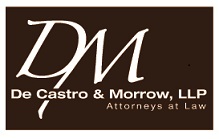As the State continues to allow additional businesses to reopen, each company must be careful to ensure that they are providing a safe environment for their employees and that they are following State and local requirements. The following are general guidelines and additional resources that businesses can use if they intend to reopen.
- Evaluate Risk and Establish a Plan Each company should prepare a written assessment of the risk that exists based on the company’s physical layout and type of work performed. Then create a written plan on what steps the company will take to prevent the spread of COVID-19 by using social distancing, increased cleaning and hygiene, employee monitoring, etc. Each company’s requirements may be different depending on the type of industry and the location.
- Train and Monitor Employees Companies should train employees on how to limit the spread of COVID-19, including how to screen for symptoms and when to stay home. Companies should then require all employees to conduct self-screening tests on a daily basis and sign an acknowledgment form that states that (a) they do not currently and have not had a fever in the last 24 hours; (b) they do not have any COVID-19 symptoms; and (c) they have not been in contact with anyone who has COVID-19.
- Cleaning and Disinfecting Protocols Companies should increase the frequency of cleaning and disinfecting, particularly in high use areas. Companies should also consider eliminating the use of common areas, such as kitchens or break rooms.
- Physical Distancing Guidelines and the Use of PPE Each company should implement measures to physically separate workers by at least six feet, using visual cues like floor markings. If necessary, businesses could reconfigure its workspace and decrease capacity within the work areas. Depending on the industry, businesses may also require its employees to wear face coverings, gloves, or other Personal Protective Equipment. If so, additional training should be provided.
- New Employment Policies Companies should draft supplemental policies that describe (a) the measures the business is taking to prevent the spread of COVID-19, (b) the employees’ requirements to self-monitor and report, (c) the employees’ requirement to stay home if sick or exposed, (d) what the company will do if an employee reports that they are ill or have been exposed, (e) any new sick leave or other leave policies.
- Posting Information Many businesses are required to post notices outside their businesses to instruct customers of specific safety protocols.
- Process of Re-hiring Employees Companies should be careful to ensure that hiring decision are based on legitimate business reasons and are not perceived as discriminatory. If the company plans on bringing back some, but not all of its prior workforce, the company should document why certain individuals were hired over others, citing reasons such as experience, skill and business need. If the employees were previously terminated, the company may have to conduct a traditional on-boarding process. The company must also decide if the employee will retain seniority and maintain prior level of benefits.
- Policies if an Employee is Sick Any employee who has a fever or any type of respiratory symptom should be sent home immediately. The company may conduct an investigation to determine who the employee has been in close contact with over the last 14 days in the workplace. Those who have been in close contact with the ill worker should be notified, while maintaining the confidentiality of the sick employee. The company should then take additional steps to clean and disinfect the workplace. The Governor has recently stated that if an employee has COVID-19, there will be a presumption that the employee contracted the virus at work and that it would be covered by workers’ compensation benefits. Thus, the business should give the employee all the proper workers’ compensation documents.
- Other Legal Issues Many other legal issues will likely arise, such as the confidentiality of medical information, offering sick leave or other leave, providing employees with reasonable accommodations, and how to address employees who are reluctant to return to work.
- Industry Specific Guidelines and Other Resources
- CDC decision tree to determine if your specific business should reopen:https://www.cdc.gov/coronavirus/2019-ncov/downloads/community/workplace-decision-tree.pdf.
- State of California guidelines: https://covid19.ca.gov/industry-guidance/.
- Los Angeles County Public Health Department: http://publichealth.lacounty.gov/media/Coronavirus/
- Ventura County information: https://vcportal.ventura.org/covid19/docs/2020-05-12_VCE_MoreBusinessOpenings.pdf
De Castro & Morrow can provide all of the appropriate written policies and documents.
Latest News
- 20 Jan 2023New Employment Laws – 2023
- 21 Feb 2022Covid 19 UPDATE for 2022 and Supplemental Paid Sick Leave Extended
- 09 Feb 2022New Employment Laws – 2022
- 18 Dec 2020Cal-OSHA issues COVID-19 rules for all employers
- 18 May 2020COVID-19 Return to Work Guidelines


Awesome post. Really looking forward to read more. Really Great. Clementine Alaster Onida